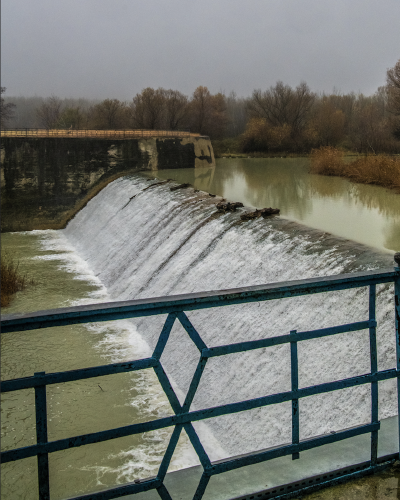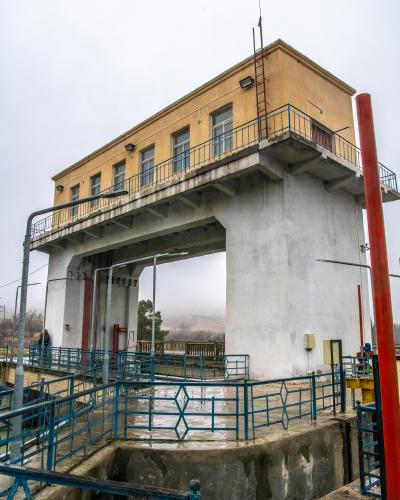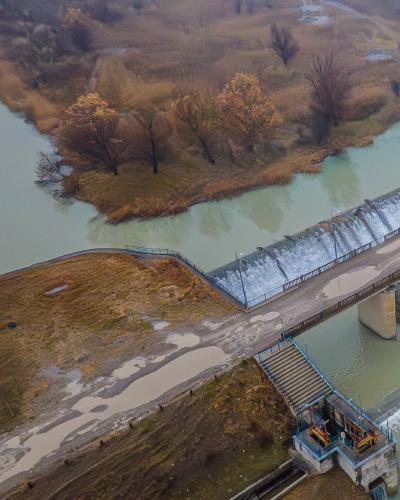Bringing Georgia closer to becoming food-secure and climate change-resilient with key infrastructure upgrades and policy reforms that support irrigation modernization and encourage private investments.
agriculture lagging in broader economic growth
Located at a key transit point between Asia and Europe, Georgia is a small economy that has seen fluctuating growth in recent years. After the economy contracted by 6.2% during the pandemic, growth rebounded strongly at 10.5% in 2021 and remained high at 10.1% in 2022 before dipping slightly to 7.5% in 2024.
Despite this overall growth, Georgia’s agriculture and food security sector is shrinking. Its share of gross domestic product fell from 10.3% in 2020 to 7.4% in 2021. Agricultural employment also dropped from 22.5% to 18% in the same period. At the same time, food insecurity remains a major concern. Geopolitical tensions in the region, such as the Russian invasion of Ukraine, have contributed to rising food prices, leading to 39% of the population experiencing food insecurity from 2019 to 2021. This has made Georgia highly reliant on imports.
A key issue limiting farm productivity is poor irrigation, on top of other factors like outdated farming practices, water scarcity, and small farm resource inefficiencies. Since Georgia’s independence in 1991, irrigation investment has been low. The disruption in irrigation operations and management led to a sharp decline in irrigated farmland—from 386,000 hectares (ha) in the 1980s to just 88,000 ha in 2015.
Water availability in Georgia also varies across the country. Western Georgia has sufficient water resources, while the eastern region is dry and water-scarce. Climate change is further threatening the water supply, putting Georgia’s agricultural output at risk.
To manage and rehabilitate its irrigation systems, the Georgian government established the Georgian Amelioration (GA). The GA is responsible for rehabilitating, operating, and maintaining irrigation systems. However, its irrigation tariffs have remained fixed since 2010, making it difficult to cover operation and maintenance costs.
“This program will modernize Georgia’s irrigation systems with efficient closed pipe networks, train farmers in better techniques, and reform irrigation policies.”

modernizing irrigation and farming efficiency
To improve irrigation, ADB and its cofinancing partner, Agence Française de Développement, launched the Climate Smart Irrigation Sector Development Program. The project aims to upgrade existing infrastructure from open canals to a more efficient mix of closed pipe and open canal networks; share water-efficient irrigation technologies with farmers; and boost resilience to future climate change impacts by introducing low-carbon and nature-based solutions into land and water management.
Women play a major role in Georgian agriculture, taking on a large share of farm work including crop and livestock management. Yet they face additional challenges such as poor rural infrastructure and limited access to transportation and agricultural services. The program will support women farmers by reducing their workload and improving access to essential services.
“Bolstering irrigation infrastructure and mainstreaming water-efficient irrigation approaches will improve food security and help Georgia be more climate-resilient.”

groundwork for sustained agriculture reform
To address both financing and policy gaps, ADB and the Georgian government have adopted a sector development program approach and divided implementation into two phases to allow for learning and adjustments as the economy changes.
The government has approved new laws and laid down strategies for water and irrigation management, encouraging private businesses to get involved in improving water and agriculture. Private sector investment will help in the development and adoption of innovative, climate-adaptive, agricultural production and irrigation technologies, and increase productivity.
The project is looking at several outputs. The first focuses on better institutional capacities and making the Ministry of Environmental Protection and Agriculture a stronger implementing agency for instituting reforms.
The second output is fixing the Kvemo Samgori Left Main Canal. Modernizing this water source includes upgrading the 17-kilometer main canal by constructing a combined closed pipe and open canal network for irrigation. It will irrigate 7,316 hectares of farmland. The improvements will also include a supervisory control and data acquisition system for real-time monitoring and regulation of water flows.
The third output focuses on introducing more efficient ways to farm, like using drip irrigation, smart water management, and digital farm management. They will also train farmers in these new methods and help with issues like getting loans and market information.
By combining policy reforms with infrastructure investment, the project aims to boost Georgia’s food security and climate resilience. This lending modality and approach could be scaled up in other developing member countries facing similar challenges.
“Strengthening irrigation infrastructure and promoting water-efficient practices will enhance food security and help Georgia adapt to climate change.”



